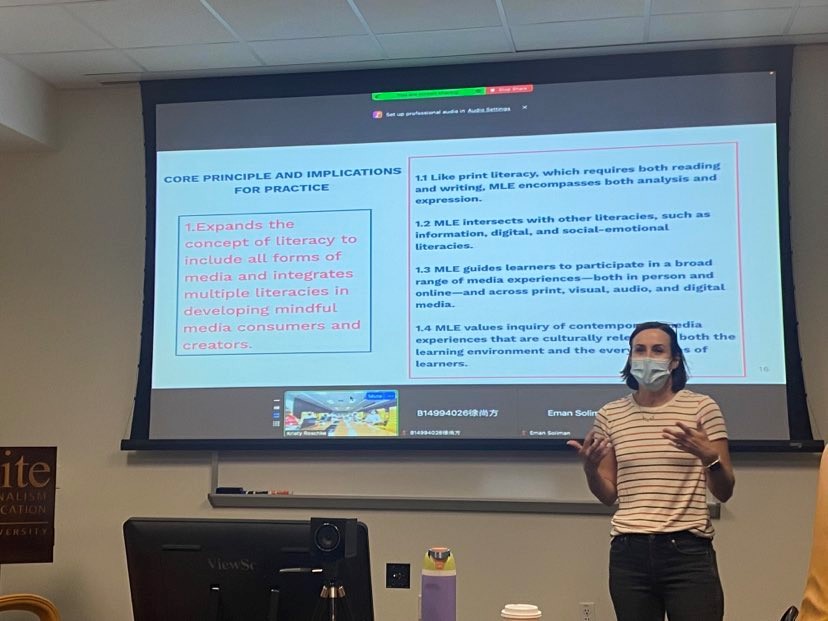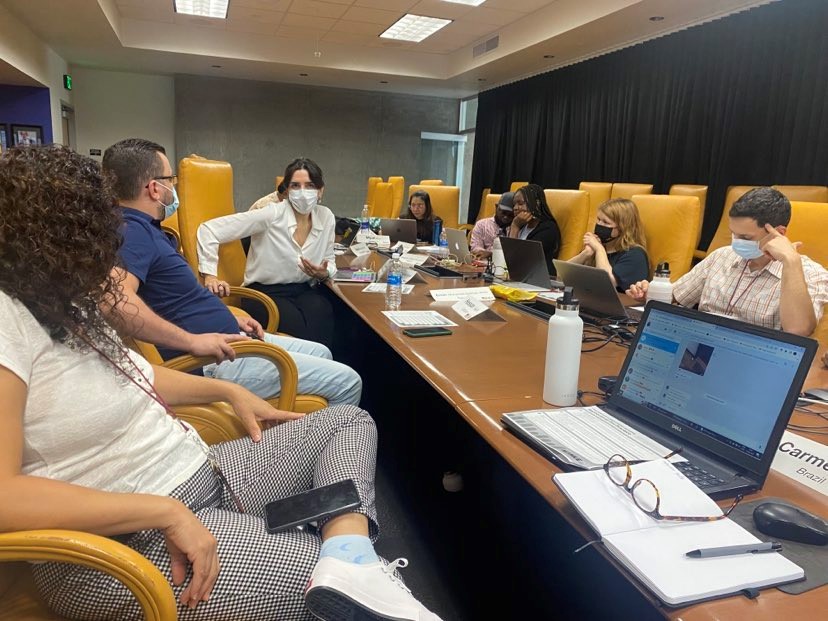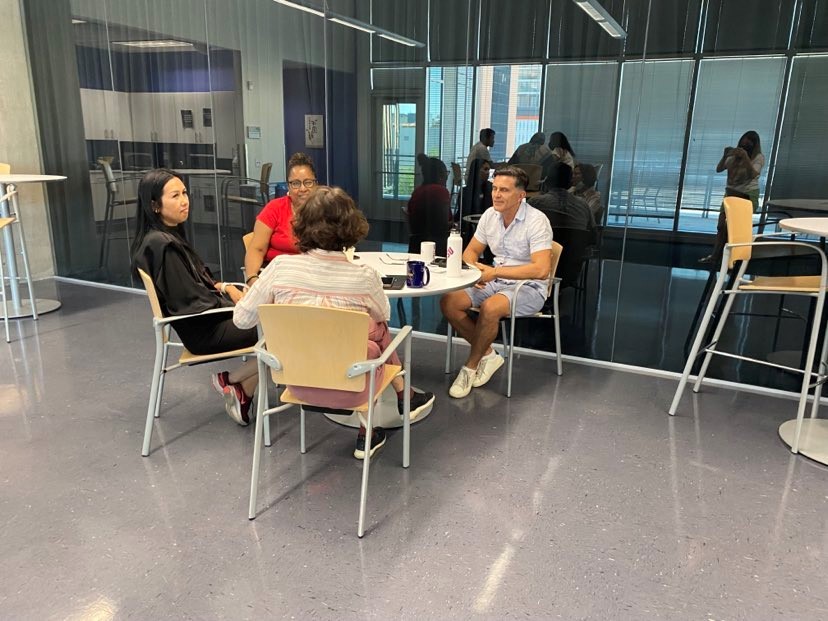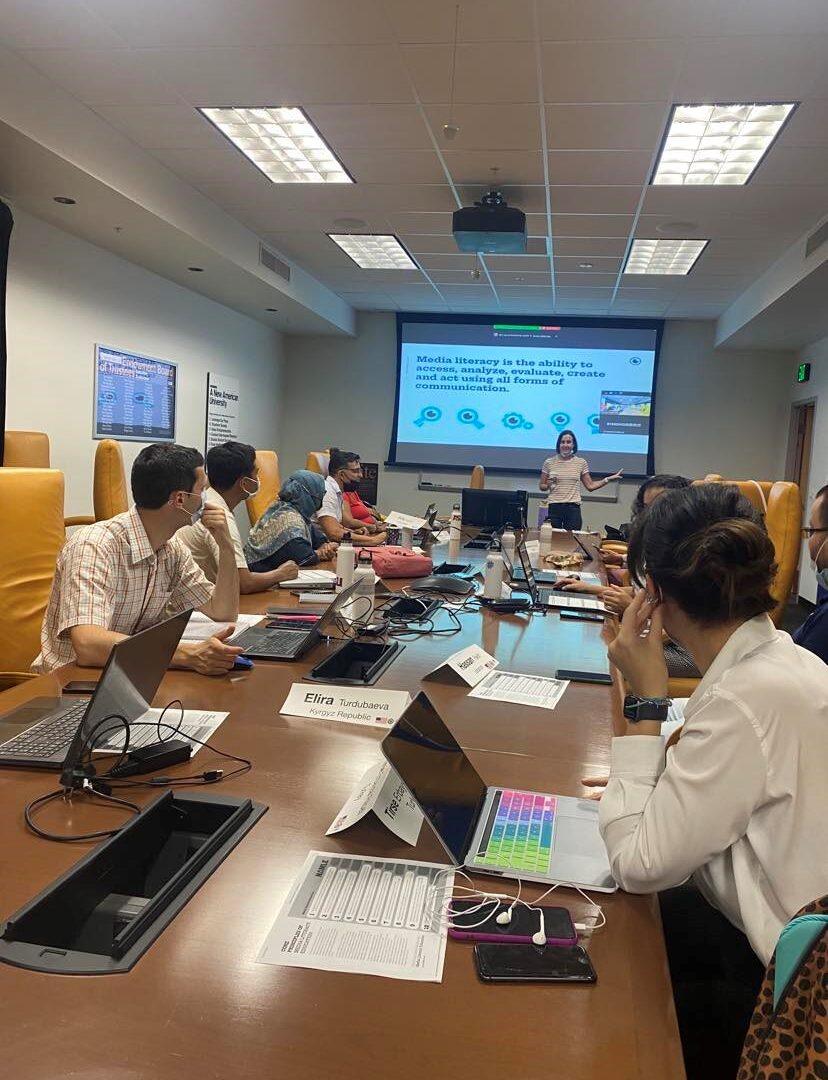In our era of quickly spreading information and new technology development, a huge problem has arisen: disinformation, misinformation, and fake news. Some of the most efficient means of avoiding fake consumption are through media literacy and fact-checking. However, these tools are still not enough. SUSI Scholars spoke with Cronkite faculty member, Managing Director of the ASU News Co/Lab Dr. Kristy Roschke, about community journalism as one effective means of improving the quality and trustworthiness of information.
The second week for SUSI Scholars started by exploring the topic of disinformation, media literacy, and community journalism. Dr. Kristy Roschke presented to the scholars her research and the theoretical grounding of disinformation. She singled out the definition of media literacy, its main purpose, and its goals. Dr. Roschke also outlined that false information can be divided into three types – misinformation, disinformation, and malinformation – dependent on the intent of harm.

The theme drew the attention of the SUSI scholars and they were eager to share the experience of media literacy in their countries. A scholar from the Slovak Republic, Peter Kravcak, declared that media literacy is an optional subject there, and there is still a lack of media literacy and critical thinking in his country.
Rachna Sharma from India emphasized that society needs critical thinking on how to access the information, and how to understand and react to it.
A really big problem is paid news during the elections. But we are also witnessing a problem such as deepfakes, so we should concentrate our attention on digital media literacy.
Rachna Sharma (India)
New and especially useful were the cases of fighting disinformation for Elastus Mambwe from Zambia. He noted that in his country there is no accepted definition of media literacy so he recognizes it as a challenge.
Angela Orlene Van Der Kooye from Suriname expressed her own feelings about disinformation:
I don’t believe everything that the media says. We have a lot of fake news, and it has been going on for centuries. For me, media literacy is the ability to check the information, which we get. It’s not intelligent to share disinformation.
Angela Van Der Kooye (Suriname)
Elira Turdubaeva from Kyrgyz Republic informed the group that in her country there are many projects distributed on media literacy in Central Asia. But there are still troll farms that support Russian propaganda, so there is a lot of work needed to change this situation.

Photo by Mariana Kitsa
After active discussions on media literacy, Dr. Kristy Roschke outlined the challenges facing the global media sphere. These included a fragmented news audience, information overload, mistrust of institutions, and conflict framing. The scholars then discussed examples of communication in their countries about vaccination during the COVID-19 pandemic. Almost no one was satisfied with the communication strategy of their countries about this issue. Another topic discussed was audience trust in local news. Television still remains the main source of information among elder people and digital media among younger recipients.
The next day on media literacy and disinformation was no less interesting. The scholars watched two videos with doubtful content and discussed whether this information was true or false. After that, they worked in groups to find new approaches to media literacy for different age groups. Researchers enjoyed these activities and found them really interesting and intellectually stimulating.

Photo by Mariana Kitsa
Dr. Kristy Roschke also acquainted the scholars with core principles of media literacy education, which can be implemented in all facets of life not only in the U.S. but also in other countries.
As for my own experience, the topic of media literacy and the spreading of disinformation is more current than ever. While the horrible war is ongoing in Ukraine, our society is very dependent on the news and information published in media outlets. It’s obvious that freedom of speech is limited during martial law, but I think this is justified. If there were a lot of alternative information about the problems and losses in the war, then people could be in a state of panic and anxiety. So our government gives us information that is useful and important to know in each concrete situation. But the media space is free and we have access to foreign sources of information, so we do need to know tools for checking information and popularizing media literacy. In Ukraine there are a lot of fact-checking organizations which do their work fairly and responsibly. The only challenge is how to spread refutation of disinformation to the widest possible audience not only in Ukraine but also abroad. This is something which we should do more intensively.
